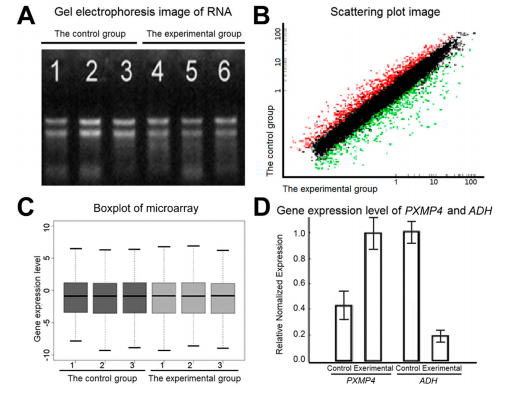Li-Jun Zhou, Fu-Rong Li, Li-Jie Huang, Zhi-Rong Yang, Shu Yuan* and Lin-Han Bai*. Antifungal Activity of Eucalyptus Oil against Rice Blast Fungi and the Possible Mechanism of Gene Expression Pattern.[J]. Molecules, 2016, 21(5).
Abstract
Eucalyptus oil possesses a wide spectrum of biological activity, including anti-microbial, fungicidal, herbicidal, acaricidal and nematicidal properties. We studied anti-fungal activities of the leaf oil extracted from Eucalyptus. grandis × E. urophylla. Eleven plant pathogenic fungi were tested based on the mycelium growth rates with negative control. The results showed that Eucalyptus oil has broad-spectrum inhibitory effects toward these fungi. Remarkable morphological and structural alterations of hypha have been observed for Magnaporthe grisea after the treatment. The mRNA genome array of M. grisea was used to detect genes that were differentially expressed in the test strains treated by the Eucalyptus oil than the normal strains. The results showed 1919 genes were significantly affected, among which 1109 were down-regulated and 810 were up-regulated (p < 0.05, absolute fold change>2). According to gene ontology annotation analysis, these differentially expressed genes may cause abnormal structures and physiological function disorders, which may reduce the fungus growth. These results show the oil has potential for use in the biological control of plant disease as a green biopesticide.

Read article:/en/upload/File/20170316/20170316170540_96774.pdf